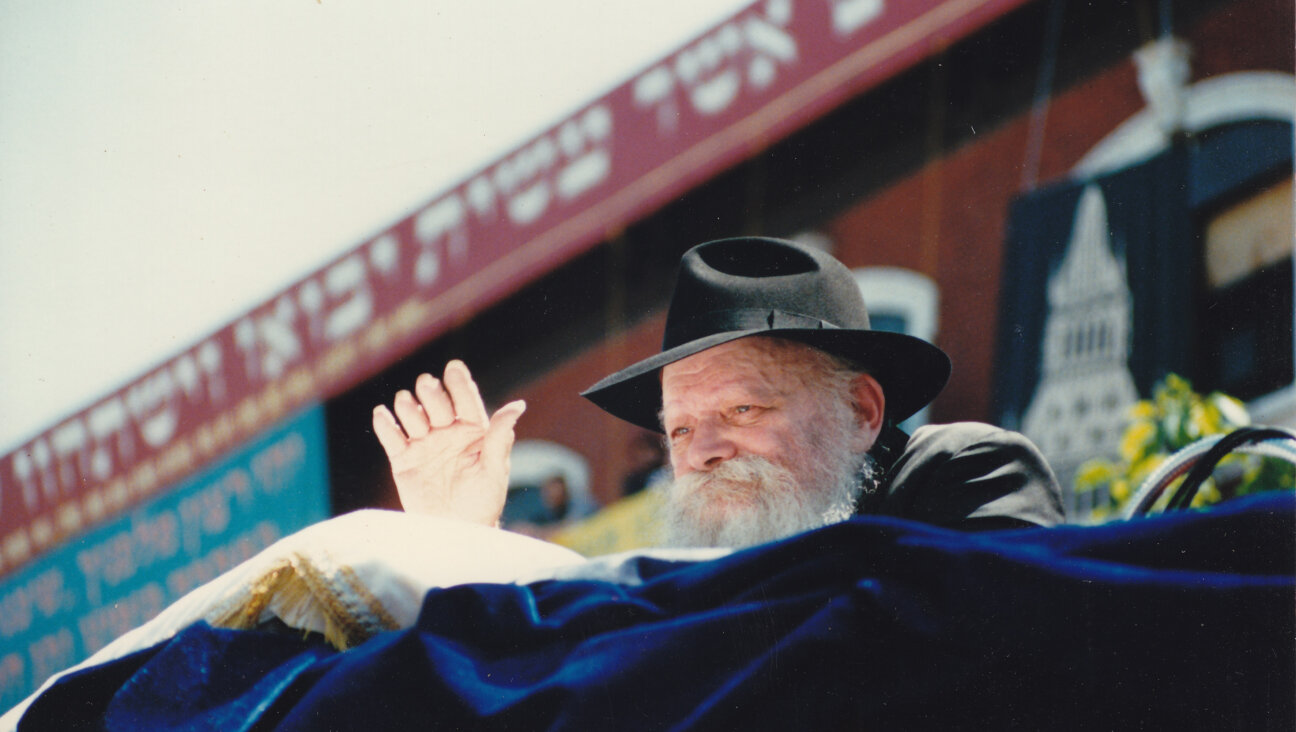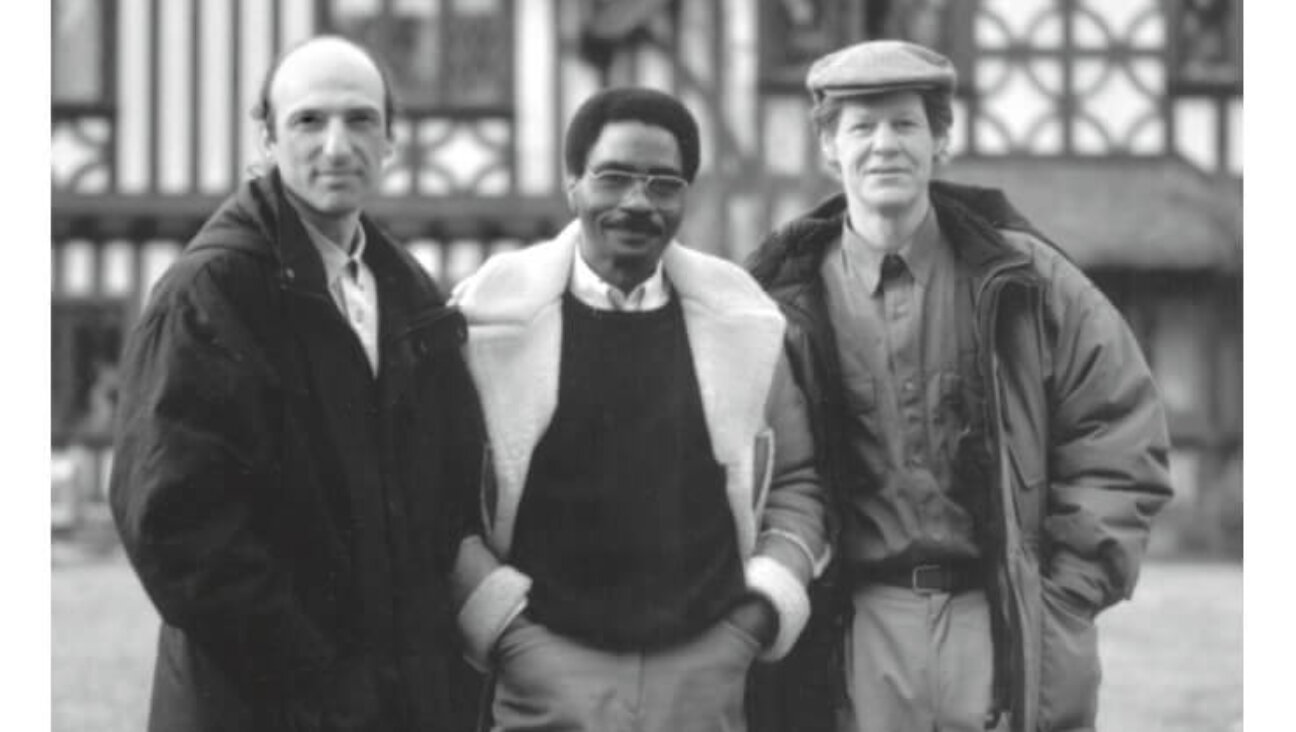November 21, 2003
Little Frank a Class Act
It was with great satisfaction that I read the November 14 profile of Frank Luntz (“Political Pollster Grows Into His Jewish Identity).
I was Frank’s principal and teacher for seven years at religious school. I knew him and his family very well. Although not heavily observant, Frank always had a strong sense of Jewish identity. I am not surprised at all at his growing into this identity.
At religious school, Frank was an outstanding student — highly motivated, engaged and challenging. He was head and shoulders above his classmates. He was also a very pleasant young man: polite, fair-minded, respectful, witty and caring. His quest for center stage is not for publicity or vanity, as his critics charge. He passionately believes in his work and his conclusions. He wants them to become part of the “arena of ideas” so people can make intelligent choices.
Frank’s critics should know that he has an impeccable background as a human being, with high standards and values reflecting his father’s and grandfather’s philosophies of life.
Barry Gordon
Bloomfield, Conn.
No Excuse for Violence
What occurred at the University of California at Los Angeles after Alan Dershowitz’s speech in October had nothing to do with politics, one’s views on Israel and certainly not the murder of Yitzhak Rabin (“Don’t Let Them,” November 14).
What took place was an assault on a woman by one of the Los Angeles community’s most “esteemed” rabbis, Rabbi Chaim Seidler-Feller. It is shocking, unforgivable and in my view merits his resignation or dismissal. Condoning such an assault is incomprehensible, especially from people who have fought so tirelessly for the rights of women and others, and who profess to abhor violence especially against women.
Just to set the record straight, let me give you a short biography of Rachel Neuwirth. She was a commander in the Israeli air force, a member of the Israeli national women’s basketball team, an El Al flight attendant and a guide for the Jewish Agency in Israel — which means she passed a test on Israel’s history and biblical heritage. Today she is a respected member of the community, a strong advocate for Israel and for the quest for true peace.
Also, Neuwirth’s only brother was killed as a result of injuries suffered during the Yom Kippur War, and she had close friends massacred at the Munich Olympics.
There is no campaign to “get” Seidler-Feller for his political views, but an effort to see him removed from his post for a long series of verbal abuses against his opponents, students and now physical violence against a woman. I am concerned about the impact his actions have on students and the example it sets for our community. No one is trying to shut him up; in fact he has tried to silence those who hold different views, including myself on more than one occasion. But that is all irrelevant.
We must not let violence against women go unpunished. For too long, this society has condoned violence against women in many forms.
Gary Ratner
Santa Monica, Calif.
The writer is Los Angeles regional director of the American Jewish Congress. The views expressed are his own.
I read your editorial about the event of “Jew vs. Jew” that took place at UCLA a few weeks ago. I was there. This is not a “left versus right” incident but a right versus wrong. No rabbi, no man of Torah, no matter what, hits a woman, especially in front of his students. No man should ever hit a woman. This type of violent behavior has nothing to do with “Labor and Likud,” but simply bad behavior. Making excuses for the rabbi is like telling the batterer of a wife that it was okay — because, after all, she did burn the toast. This article was clearly the work of a pro-Seidler-Feller campaign to make this a political issue, when it was clearly an issue of a man hurting a woman.
Trying to say that Chaim Seidler-Feller’s long history of teaching and fundraising mitigates his actions is an affront to civility. Shame on the writer for making excuses for battery.
Allyson Rowen Taylor
Valley Glen, Calif.
Good Giving Advice
I live in Argentina, a suddenly impoverished country that used to be the pride of the South American continent and where the Jewish community is very large. Fortunately, I am a college graduate and have a well-paid job, so I give tzedaka to almost every beggar in the street I run into — except one.
Every evening when I come back home from work, there is a middle-aged woman who stands by the stairs to the subway holding a cardboard box. She has been there for a couple of years, and wears a pair of dark glasses. Sometimes I give her some coins, but to tell you the truth, I do not like her. She seems to come from a middle-class background; she looks like she could find work if she made an effort. There is something that makes her stand out from other beggars, and it is that difference that makes me hesitate in giving her tzedaka.
I couldn’t explain my “feeling” in words, and wasn’t sure whether it was my moral obligation to give her money, even though I did not want to, so I asked my rabbis for an opinion. Their answers, however, were inconclusive.
Well, it looks like God took care of my concern and gave me an answer in Zelda R. Stern’s opinion article in the special Giving section (“Putting Tzedaka Where Our Values Are,” November 14). Now I can confidently put tzedaka where my values are. Thank you very much for your article.
Manuel Gwiazda
Buenos Aires, Argentina
A message from our CEO & publisher Rachel Fishman Feddersen

I hope you appreciated this article. Before you go, I’d like to ask you to please support the Forward’s award-winning, nonprofit journalism during this critical time.
We’ve set a goal to raise $260,000 by December 31. That’s an ambitious goal, but one that will give us the resources we need to invest in the high quality news, opinion, analysis and cultural coverage that isn’t available anywhere else.
If you feel inspired to make an impact, now is the time to give something back. Join us as a member at your most generous level.
— Rachel Fishman Feddersen, Publisher and CEO























